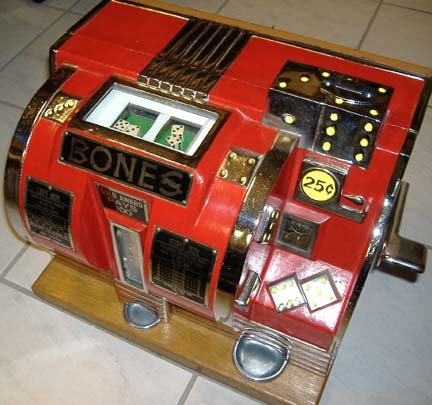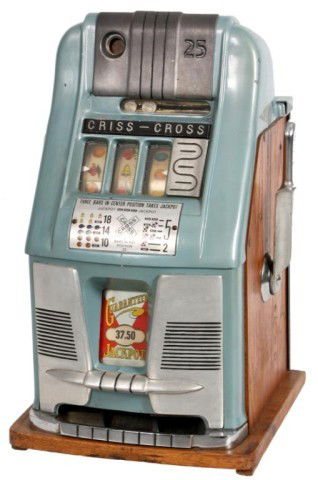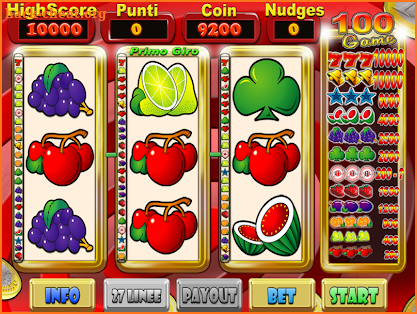Mills Criss Cross Slot Machine
- Mills Criss Cross Slot Machine
- Mills Criss Cross Slot Machines
- Mills Criss Cross Slot Machine Repair Service
- Mills Criss Cross Slot Machine Jackpots
Free Criss Cross online slot is played on 4 reels and 81 paylines. This game from Wazdan not only looks pleasing but runs smooth on any mobile device. As for the design goes, colorful symbols adorn the reels, which are triple red sevens, blue double bars, double green sevens, single bar, blue seven, orange, lemon, red double bars and cherries. The triple red sevens symbol is worth paying 50 credits.
Free Criss Cross online slot is played on 4 reels and 81 paylines. This game from Wazdan not only looks pleasing but runs smooth on any mobile device. As for the design goes, colorful symbols adorn the reels, which are triple red sevens, blue double bars, double green sevens, single bar, blue seven, orange, lemon, red double bars and cherries. How can you tell if your machine is pre-1951? Slots made before 1951 did not have lighted or plastic fronts, except for the Jennings Sun Chief models. They were metal and wood, not electronic. Most of the slot machines from the 1890's to 1940's were made by only a few manufacturers: Jennings, Mills, Pace, Watling, Caille and Superior.
Joker acts as a wild symbol in this slot casino game and it can substitute for all icons except for two dices. The wild boosts your winning odds when it appears on reels. An image of two dices is the scatter symbol. If you hit three or four such symbols anywhere on reels, you trigger Mystery Drawing feature where any win can be multiplied between 1 and 50 times or 5 and 500 times of your total stake. This is truly generous.
Related Posts
…
…
…
…
…
…
…
…
…
…
…
…
…
…
…

The Johnson Act forced game makers to engineer ways around restrictions if they were to remain in business.. Following the Johnson Act, you couldn't make, ship, sell or operate a coin operated chance machine or gambling machine.

But what if you did not need a coin to operate it?
Mills Criss Cross Slot Machine
Bernard McManus of Lander, Wyoming was a pioneer in experiments of remote control. The player pays the business operator who sets up the number of plays based on the payment. The player pulls the handle to lose or win free plays. When he is finished, if there are free plays showing, the business operator pays the player in cash.
Mills Criss Cross Slot Machines
McManus made some machines known as BOOSTER as early as 1950 placing them on location. McManus contracted with Jennings to produce JOKER, an improved version, and marketed them nationally as P&M Enterprises. Later he shifted to Buckley and Buckley was manufacturing the machine, FLASH JOKER, by 1954. Ralph Kurn at Buckley is said to have designed the Electronic Pointmaker on his own time. Instead of three reels displayed to the player rotating, three disks rotated to flash the display and to randomize the outcome. The results are displayed by lit symbol when the horizontal fingers or levers pass through holes in the disk pack.

The Criss-Cross Pointmaker was made in 1955.
The appearance of the Pointmaker was unmistakable to the player as to its intent. It had the footprint and silhouette of a Mills half-hightop. What appears to be a coin entry plate is actually a pushbutton on the left and a yellow lens on the right. The player would purchase the number of plays he desired from the business operator who would step up the plays on the machine from the Control Unit. At the same time, a counter visible on the top right of the Control Unit would count these purchased plays. When plays are available on the machine, the yellow light is lit. To play a game, press the button next to the yellow light and pull the handle. About half way through the spin, the registers in both the Pointmaker and Control Unit are decremented by one game.
When replays are won, the plays are added to the registers in both the Pointmaker and the Control Unit. Games won are not addeed to the start meter, however.

Players could redeem any games on the Pointmaker by having the business operator reset the machine. The registers on both the Control Unit and Pointmaker return to zero with the games cancelled being added to the payout counter in the Control Unit. These meter readings were used to compensate the business for games redeemed, and for division of revenue. This is a 20-stop machine paying an estimated 75% back to the player. Well, it would if a 'percentage clip' were removed which prevents one of the two jackpot combinations from occuring.
The three reels can be seen together with the score disks. The brass brads on the reels are used as cams to flash the symbols on the glass during spin. The winner is selected and indicated by the stop of the reels and conventional horizontal levers penetrating the score disks to operate switch stacks. The percentage clip can be seen on the first visible score disk covering the slot that jackpot levers would sense.
Mills Criss Cross Slot Machine Repair Service
Power for the system is fed to the Control Unit. It is transformered there to 24V and 6V for fractional h.p. motors, lights, relays and solenoids. A umbilical cable runs between the Control Unit and the Pointmaker to a maximum of about 50 feet. Voltage drop beyond that impairs performance. A keyed switch on the rear of the Control Unit prevents unauthorized use.
Mills Criss Cross Slot Machine Jackpots
The Criss-Cross lights on a mystery basis with various play symbols lit and pays 20.